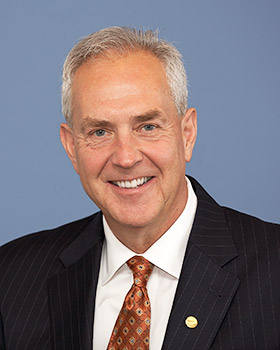
Several months ago, Enrique Beltranena, founder and CEO of Mexico’s ultra-low-cost carrier Volaris, graciously agreed to be the guest speaker at the Foundation’s 6th annual Networking Dinner and Silent Auction, which was held July 26 at the National Press Club in Washington. To say that Beltranena delivered an engaging and powerful speech would be an understatement.
“Safety is the most important function of any member of the aviation community in the world,” he said. “For a CEO in this industry, there is nothing more important, … and we as CEOs must be fully involved in the detailed functions of aviation safety and developing a strong safety culture at our companies,” he said. “If you don’t do it, you are at risk of [finding yourself] in the worst nightmare of your life.”
Beltranena was speaking from experience. In August 1995, four months after taking over as Guatemalan carrier Aviateca’s CEO, he got a call from the carrier’s Operations Control Center. Contact had been lost with Aviateca Flight 901, a Boeing 737-200 flying from Guatemala City to San Salvador, El Salvador. Thirty minutes later, a second call came in: A major explosion had been heard in the vicinity of the Chinchontepec volcano (also known as the San Vicente volcano), south of San Salvador. The wreckage was found and there were no survivors. The aircraft had failed to clear the volcano after a missed approach.
“Those 10 days (after the crash) were probably the longest of my life, and I will never forget having to face the families … and tell them what happened to their relatives,” Beltranena said. All 65 people on board the aircraft were killed in the crash that eventually was categorized as controlled flight into terrain.
Beltranena told the audience that there are questions we all need to ask ourselves: Are we investing enough in safety, and are we investing wisely? Do we recognize that, when it comes to safety, there is no competition among us? And speaking specifically about operating in Latin America, is the industry working to ensure that regulators are adequately funded so they can play their roles in safety?
“What are our attitudes toward safety, safety officers and regulators? I have seen boards, executives, investors, etc., that do not give the [necessary] importance to this topic; thinking it is more important to hit revenues, profitability or a better result in a negotiation with a big supplier,” he said.
In concluding his remarks, Beltranena said, “We are living in … an ever-faster-paced world, driven by technological transformation that is changing the way we live, travel and communicate. In this day and age, we sometimes forget that aviation safety benefits from a methodical approach and meticulous analysis. … If there is an area where we cannot risk ourselves and abandon trends and experience, it is in flight safety. I would like to insist — now more than ever, it is a time where CEOs need to involve themselves in aviation safety and its details. The organization will not do it if you don’t do it.”
I’d like to thank Enrique for speaking at the dinner and for delivering such a thought-provoking message. We are proud to have Volaris as a member of the Foundation.